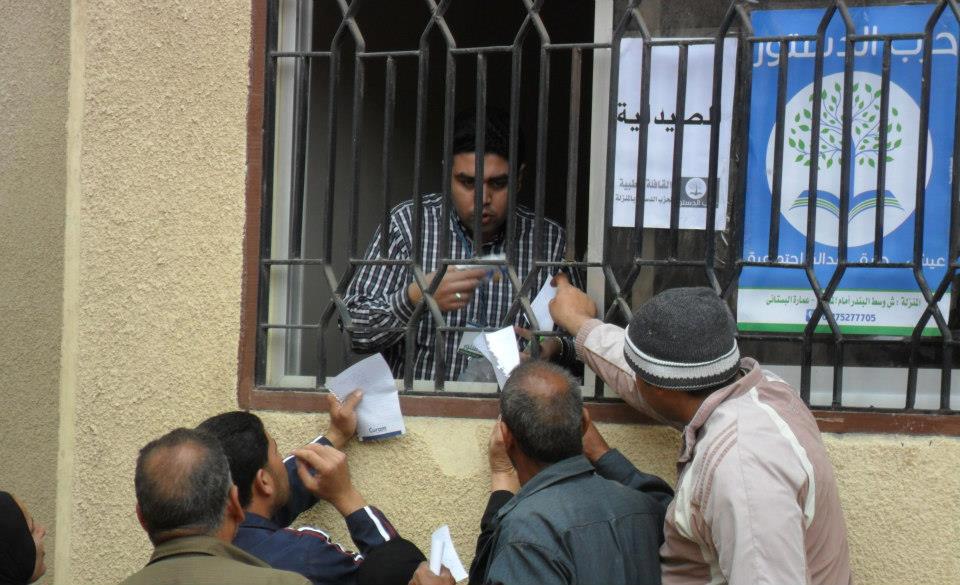On any given day, the social networking site Facebook connects long lost friends and allows you to “poke attractive strangers you wish would be your friends. But in Egypt, Facebook is the stage for the latest twist in the generation gap, playing host to politically hungry young Egyptians eager to take on their aging leader. On May 4, President Hosni Mubarak turns 80. To mark the big day for the man who has ruled them for 26 years, Egyptians who have known no other leader and who are increasingly going online to challenge him have urged their compatriots to go on strike, wear black clothes, and write “No to Mubarak on their money. I know all of this, not through news stories, but because activists publicized the details and demands of the strike on Facebook. I don’t know most of my 724 “friends on Facebook, but their messages and their status updates have become invaluable to me – especially my Facebook friends from Egypt. A group promoting the May 4 strike has almost 74,000 members, up from about 60,000 a month ago. Its demands are a minimum wage, salary raises linked to inflation, and legislation and other measures to control prices. As admirable as those goals are, I am just as in awe of the creativity that pours into Facebook. One Egyptian posted a rap song in colloquial Arabic that sounded as if it was recorded at a coffee shop – complete with the sound of water pipes and the click-clack of teacups hitting saucers. While the coffee shop patron’s rap lists the country’s woes, pictures of t-shirts illustrate the target of the song and the May 4 strike: A black one tells Mubarak simply “It was a black day when you arrived. To understand how rattled Mubarak’s regime is by the increasing popularity of what one young man called the “Political Party of the Internet, look no further than Egypt s queen and king of Generation Facebook: Essra Abdel Fattah, 27, and Bilal Diab, 20. Essra was detained for more than three weeks for forming a Facebook group calling on Egyptians to take part in an April 6 general strike. Her group collected more than 60,000 names. She was released after her mother personally appealed to Mubarak and his spouse. What but desperation would inspire a regime with 26 years under its belt to detain a 27-year-old over a Facebook group? That was essentially what Bilal told Egyptian Prime Minister Ahmed Nazif when the latter gave a speech at Cairo University urging Egyptian youth to go online to express themselves. The student interrupted the older man to remind Nazif that there were several young Egyptians in jail for doing exactly what the premiere was calling for. Police promptly whisked Bilal off for several hours, and turning him into a hero for the independent media. The state-owned media did their best to ignore him. No doubt Essra and Bilal’s run-ins with Mubarak’s security forces were meant to teach their online cohorts to swear off the internet. Not likely. “We are all Essra became the name of a popular group on Facebook. Young activists like Essra and Bilal are uniquely positioned to step into the cracks that have widened in Egypt lately: An ageing dictator and his out-of-touch cabinet are rumored to be the richest men in Egypt’s modern history, at a time when spiraling food prices are grinding most Egyptians deeper into misery. Recently, at least 11 people have died while lining up for bread. Another active Facebooker, Mohammed Abdel Hai, who posted that rap song in support of the May 4 strike, told a television show host recently that he turned to the internet out of sheer frustration. At university he wanted neither of the only two options available – Mubarak’s National Democratic Party or the Muslim Brotherhood, the political Islamist movement that is Egypt’s largest opposition group. Generation Facebook is the godchild of two important developments that took off over the past three years in Egypt – an increasingly bold blogging movement and street activism. In 2005, activists breached not just laws against public demonstrations but taboos against protesting against Mubarak himself, with street protests that focused on Egypt and its internal discontent. But that 2005 movement was criticized for being out of touch with the needs of ordinary Egyptians and for failing to rally the masses. This year’s internet-inspired activism has flipped the script – the needs of the masses have sparked a wave of unprecedented activism among young Egyptians. When I asked my younger sister Nora, 21, why she joined the April 6 strike in Cairo, she said watching people crying on television because they didn’t have LE 35 (less than $7) to feed their families broke something in her. Two of her friends, also women in their early 20s, were detained for two days for taking part in a downtown Cairo demonstration in support of the strike. In 2005, the Kefaya movement and the Muslim Brotherhood would announce demonstrations and hope ordinary Egyptians would join them. Now both those movements are joining the May 4 strike called by the Facebook activists. The April 6 strike was sporadic and focused mostly on the Nile Delta town of Mahalla El-Kobra where at least two people were killed and more than 150 injured in two days of rioting. A Facebook group for the May 4 strike consoled Egyptians by reminding them that “God created the world in six days. We can’t change Egypt in one day. Egypt s Generation Facebook, unlike its octogenarian leader, has time on its side. Mona Eltahawyis an award-winning New York-based journalist and commentator, and an international lecturer on Arab and Muslim issues.


